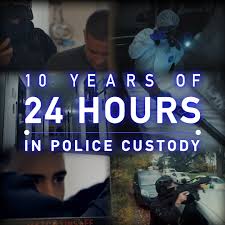The Impact of 24 Hours in Police Custody in Modern Law Enforcement

Understanding Police Custody
In the field of law enforcement, the term ’24 hours in police custody’ often refers to the critical first day of detention for a suspect. This period is crucial for the gathering of evidence, decision-making on charges, and potential release on bail. The process not only reflects the procedural rights of the detained but also the operational protocols that police must follow during this sensitive timeframe.
New Developments in Custodial Procedures
Recent events have highlighted increasing scrutiny on how police custody is managed in the UK. Following several high-profile cases of alleged police misconduct, authorities have implemented tougher regulations to ensure the rights of detainees are upheld. The Home Office has released new guidelines mandating that any individual held longer than 24 hours must be reviewed by a supervising officer. This change aims to improve transparency and accountability within police operations.
24-Hour Custody Reviews
One important aspect of the 24-hour period is the mandatory review of the suspect’s status. Police must present sufficient evidence to justify continued detention or consider releasing the individual on bail. According to statistics from the National Police Chief’s Council (NPCC), around 85% of individuals detained are released after this initial period, highlighting the importance of prompt and fair processes to prevent unnecessary detention.
The Role of Legal Representation
Legal representation during this time is crucial. Detainees have the right to consult a solicitor, which is possibly the most significant safeguard against wrongful detention. In recent years, lawyers have increasingly stressed the importance of their presence during police interviews, leading to improvements in law enforcement practices. The legal community argues that access to legal advice within the first 24 hours not only protects the rights of individuals but also enhances the integrity of police investigations.
Implications for Society
The implications of police custody practices extend beyond individual cases; they reflect broader societal views on justice and fairness. With the advent of more technology-driven approaches, such as body-worn cameras and digital evidence storage, transparency has improved, but challenges remain. Community organisations and civil rights groups express concerns over potential abuses of power and are advocating for ongoing reform.
Conclusion: Looking Ahead
As society continues to critically assess the relationship between law enforcement and civil rights, the procedures surrounding ’24 hours in police custody’ will remain a focal point for policymakers and communities alike. Future reforms may shift towards enhanced oversight and improved support mechanisms for both police and detainees. For the general public, staying informed about these issues is vital, as personal rights and public safety are inextricably linked within the framework of the justice system.









